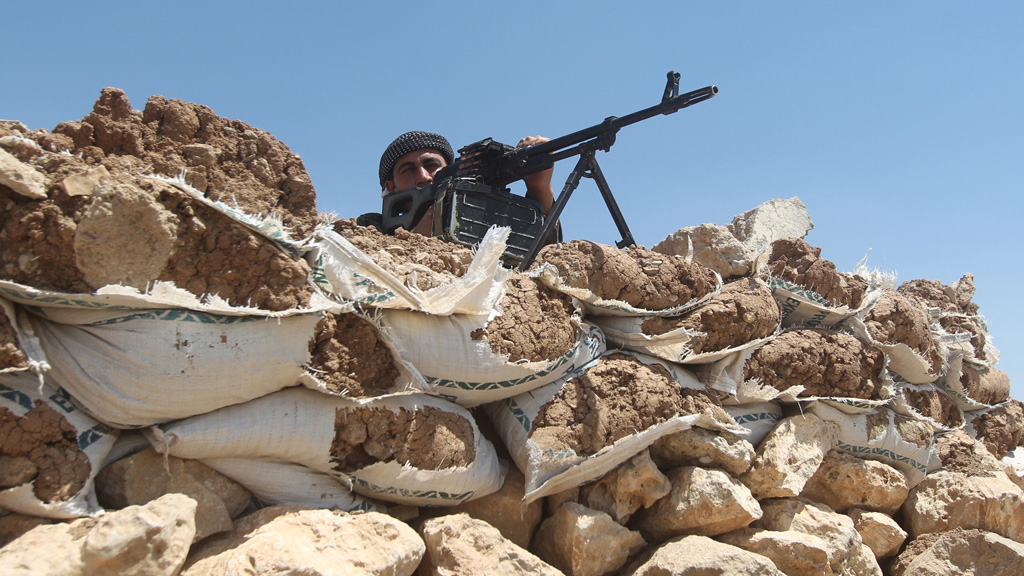EU backs arming of Kurds in Iraq
The European Union welcomes moves by member states, including the UK, to supply arms and ammunition to Kurdish fighters trying to halt the advance of Islamist militants in Iraq.

Foreign Secretary Philip Hammond, who said the UK will “consider favourably” any request for the supply of arms to help Kurdish forces combat Islamic State (IS) jihadis, has been in talks with other EU foreign ministers in Brussels today.
In a statement after the meeting, the EU said it “welcomes the decision by individual member states to respond positively to the call by the Kurdish regional authorities to provide urgently military material”, but that it was up to individual member states how to act.
“Such responses will be done according to the capabilities and national laws of the member states, and with the consent of the Iraqi national authorities,” it said.
The EU said Iraq was an “important partner in need of strong support” and there was an “international and European responsibility to co-operate with Iraq in our common fight against terrorism”.
It also called for an investigation into IS war crimes in Iraq and Syria and said that it would look at ways to prevent the extremists from benefiting from oil sales.
A UK-drafted United Nations Security Council resolution seeking to stem the flow of finance to IS and sanction those who are seeking to recruit jihadists will go to a vote in New York this evening.
Calls for help
Kurdish Peshmerga fighters have been at the forefront of efforts to halt the IS advance, but they have complained about being outgunned by IS, leading to offers of support from Western governments, including Britain and France.
Britain is already shipping Soviet-era ammunition and supplies from eastern European countries to the Kurds.
IS fighters are now just 30 minutes from Irbil, the capital of the semi-autonomous Kurdish region, after the Sunni insurgents captured swathes of territory in the north and west of Iraq.
Downing Street said two planeloads of UK aid were on their way to Irbil. They will be sent to the Dahuk region, where 450,000 refugees – many of them Christians or members of the Yazidi minority – have gathered after fleeing from IS.
The supplies include cooking equipment to be distributed by the World Food Programme, and the UK is also working with UN agencies to accelerate the distribution of financial aid to the non-governmental organisations (NGOs) working on the ground.

Maliki steps down
Earlier on Friday Nouri al-Maliki stepped down as prime minister of Iraq, paving the way for a new coalition that regional powers hope can quash the Sunni insurgency.
Mr Maliki ended eight years of often divisive, sectarian rule and endorsed fellow Shia Haider al-Abadi in a televised speech during which he stood next to his successor and spoke of the grave threat from Sunni Islamic State militants who have taken over large areas of northern Iraq.
“I announce before you today, to ease the movement of the political process and the formation of the new government, the withdrawal of my candidacy in favour of brother Dr. Haider al-Abadi,” Mr Maliki said.
Growing pressure
Mr Maliki’s decision was likely to please Iraq’s Sunni minority, which dominated Iraq under Saddam Hussein’s iron rule but was side-lined by Mr Maliki, a relative unknown when he came to power in 2006 with US backing.
Mr Maliki had resisted months of pressure to step down from Sunnis, Kurds, some fellow Shias, Iran and the United States. He had insisted on his right to form a new government based on the results of a parliamentary election in late April.
His insistence stirred concerns of a violent power struggle in Baghdad. But in recent days, as his support was obviously crumbling, he told his military commanders to stay out of politics.